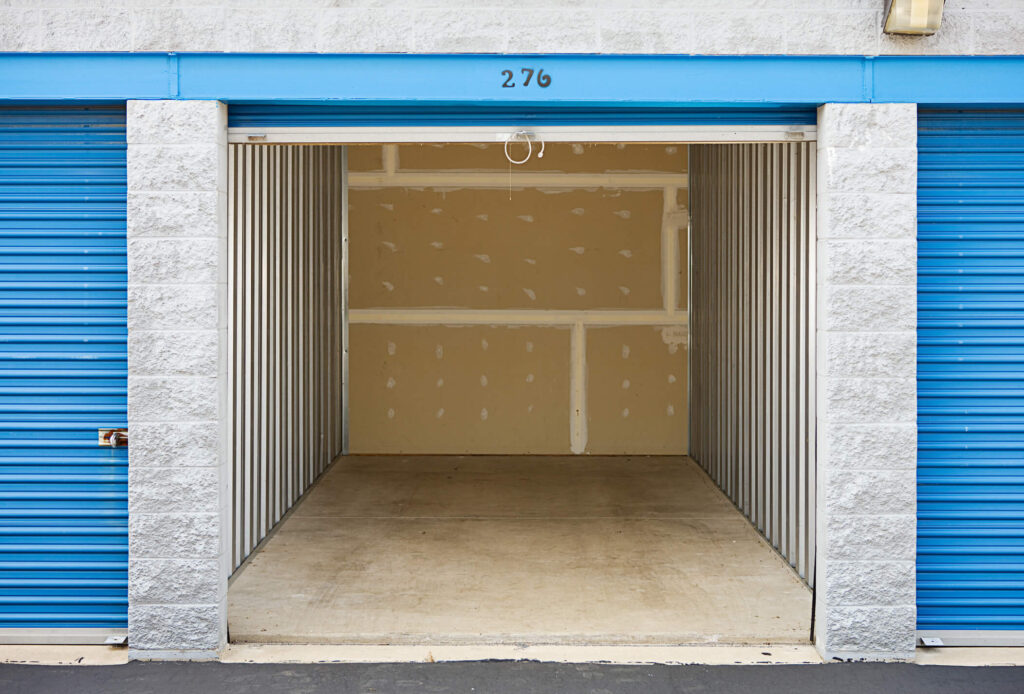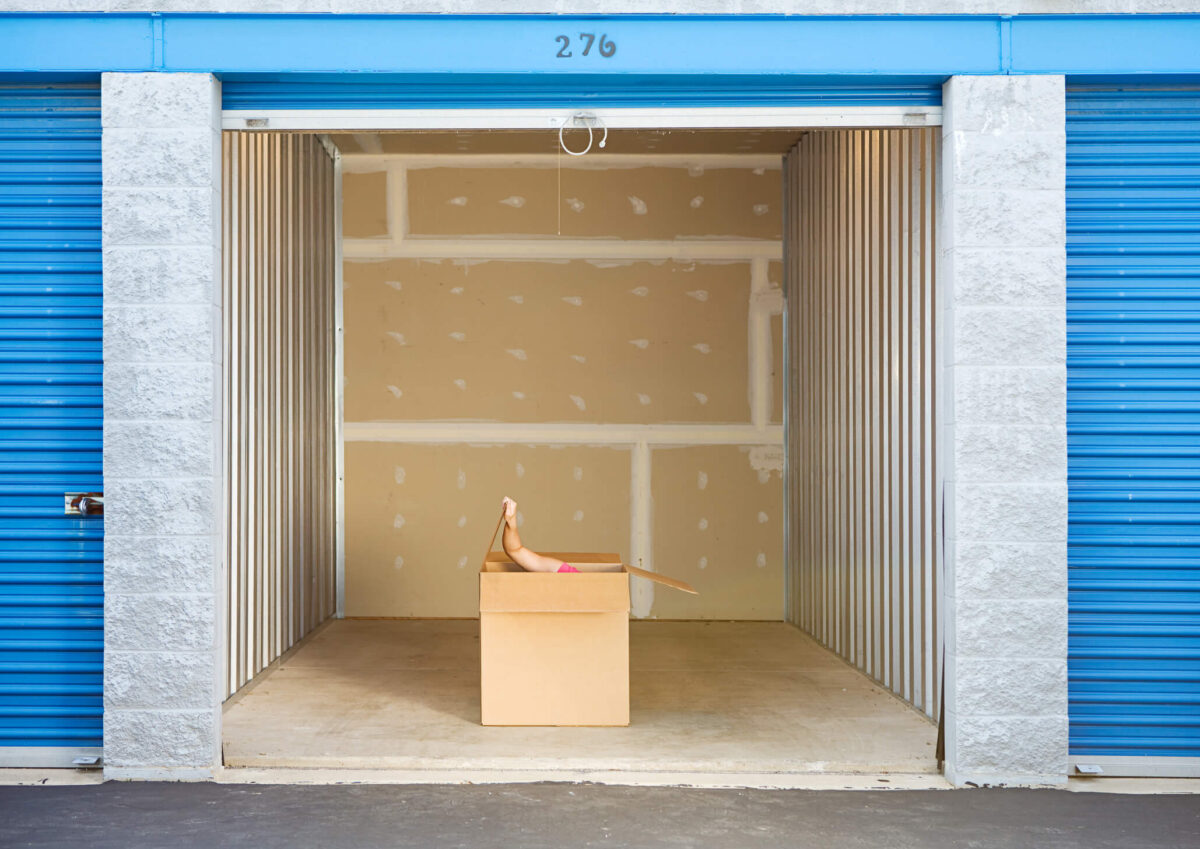Storage units are a convenient solution for managing excess belongings, housing items during a move, or storing business inventory. Yet, it’s surprising how often people abandon these units, leaving behind personal possessions and forgotten treasures. This phenomenon, where people abandon storage units, is more common than one might think, and understanding why it happens can shed light on broader social and economic issues.
1. Financial Hardship
Financial hardship frequently leads individuals to abandon storage units. When unexpected expenses or a loss of income disrupt financial stability, the monthly rental fees for storage facilities in places like McDowell Mountain Community Storage can become overwhelming. Faced with the choice between paying for storage or meeting critical needs such as housing, food, and utilities, individuals often prioritize immediate survival over maintaining their storage unit payments.
Unfortunately, failure to keep up with these payments can result in eviction from the storage facility, compounding the challenges of navigating financial instability. This situation underscores the tough choices people confront during difficult times, illustrating how financial pressures can force them to abandon their storage units.
2. Life Changes
Significant life changes such as divorce, relocation, or the death of a family member often trigger the abandonment of storage units. During a divorce, the emotional and logistical strain can consume individuals, causing them to overlook or forget about their storage units amidst the chaos. Abrupt relocations frequently leave people unable to manage all their belongings in time, unintentionally leading to unit abandonment.
Similarly, the passing of a loved one can create emotional turmoil and practical challenges, causing their storage unit to be neglected or overlooked afterward. These events illustrate how personal crises can divert attention from maintaining and retrieving stored items, potentially resulting in neglect, damage, or even theft due to security lapses or expired rental contracts.
3. Lack of Need
Renting a self-storage place is often a solution for temporary needs, like storing furniture during home renovations or relocation. However, these temporary states can lead to neglect or abandonment of the rental property. When someone faces life’s changes, such as finishing renovations or settling into a new place, the urgency to clear out clutter diminishes.
Often, renters intend to manage their valuables later but get caught up in the busyness of life or other priorities. This delay can inadvertently result in the abandonment of the self-storage unit, with everything left untouched for extended periods despite ongoing payment and contractual obligations for unit maintenance.

4. Emotional Avoidance
Storage units serve not only as physical repositories but also as emotional archives holding items imbued with sentimental value and memories. For many, the thought of revisiting these units and confronting the emotions tied to their possessions can be daunting and emotionally taxing. This emotional burden often leads to procrastination and avoidance, where individuals delay the task of sorting through their belongings.
Over time, this procrastination can escalate to the point where the storage unit is entirely forgotten or intentionally abandoned, as the mental hurdle of revisiting and dealing with the emotions becomes insurmountable. This cycle underscores how personal attachments and emotional avoidance can contribute significantly to the abandonment of storage units, turning them into unintentional time capsules of forgotten memories.
5. Health Issues
Health problems, whether physical or mental, can significantly contribute to the abandonment of storage units. Physical ailments, such as chronic pain, mobility issues, or serious illnesses, can make it physically challenging for individuals to travel to and access their storage units. Concurrently, mental health issues, such as depression or anxiety, can drain a person’s energy and motivation, making everyday tasks, including managing a storage unit, seem overwhelming or insurmountable.
In severe situations, the progression of illness or the need for more intensive care may necessitate a move to assisted living or other healthcare facilities, where the logistics of handling a storage unit become an afterthought. Consequently, these units are often left unattended, accumulating unpaid rent and forgotten belongings, sometimes for years, until they are eventually deemed abandoned.
6. Miscommunication
Storage units can be abandoned due to straightforward miscommunication or oversight, often stemming from families being unaware of their existence, particularly in cases involving deceased relatives. In such situations, the original renter may not have communicated the unit’s location or existence to their family members, leaving them uninformed about its ongoing rental obligations.
Consequently, the rental fees may go unpaid without anyone realizing, eventually leading to the unit being deemed abandoned by the storage facility. This scenario underscores the importance of clear communication within families regarding all aspects of personal belongings and financial responsibilities to prevent unintentional loss of valuable possessions.
7. Inconvenience
The geographical proximity of a storage unit to a person’s residence significantly influences its accessibility and likelihood of abandonment. When a unit is situated far away or in an inconvenient location relative to where one lives, the effort and time required to visit it regularly increase. This inconvenience become a deterrent, especially if the items stored hold low monetary or sentimental value.
Over time, the initial intent to retrieve or manage these items can diminish, ultimately leading to abandonment. The logistical challenges posed by distance can easily overshadow the perceived value of the stored belongings, making it easier for individuals to neglect or forget about the unit altogether. Thus, the location of a storage unit plays a crucial role in determining whether it remains actively managed or falls into disuse and abandonment.
8. Forgotten Treasures
Abandoned storage units hold a captivating allure due to the forgotten treasures they often contain. Owners frequently stash items away with plans to reclaim them later, only to lose track of time or face unexpected circumstances that prevent retrieval. Consequently, these units become time capsules, harboring a diverse array of belongings that span from valuable antiques to deeply personal mementos.
The stories behind these forgotten items add a layer of mystery and nostalgia, illustrating the transient nature of ownership and the emotional connections tied to possessions. Uncovering such units through storage auctions or clean-outs can evoke a sense of adventure and curiosity, as each discovery unveils a fragment of someone else’s past and the complex reasons behind their abandonment.
9. The Aftermath of Abandonment
When a storage unit is abandoned, the facility undergoes a structured legal procedure to regain possession and recoup unpaid rental fees. This process frequently includes public auctions of the unit’s contents, a phenomenon widely recognized through media portrayals such as “Storage Wars.”
These storage unit auctions can unveil unexpected finds, adding an element of intrigue, but they also signify the profound loss for the original owners who forfeit access to their possessions. Such abandonment underscores the diverse reasons individuals may neglect or forget about their stored items, ranging from financial hardships to significant life changes, illustrating the complexities of managing personal belongings amidst life’s uncertainties.
Conclusion
People abandon storage units for various complex reasons, including personal, financial, and situational factors. This issue highlights the delicate balance individuals must maintain when managing their possessions amid life’s uncertainties. Financial hardships, significant life changes, and sometimes simply overlooking rental contracts contribute to this phenomenon. By understanding these dynamics, we can better grasp the intricacies of storage unit abandonment and explore strategies to lessen its impact on individuals and families.
Frequently Asked Questions
Are storage units that have been abandoned auctioned off?
Yes, storage companies frequently auction off vacant units to recoup lost rental revenue. Auctions can be conducted online or in person and are often open to the public.
What kinds of things are frequently discovered in storage containers that have been abandoned?
Abandoned storage units may include everything from clothing and furniture to sentimental items. Less frequently, more expensive goods such as electronics or memorabilia are discovered.
Why would someone purposefully leave a storage unit unattended?
Some people may decide to abandon a unit if they no longer think the objects in it are helpful or if the cost of the unit is more than the value of its contents.
Does leaving a storage unit have any legal repercussions?
Abandonment usually carries no legal consequences, but if the renter doesn’t pay the rent, they could get in debt or damage their credit.
What happens to private belongings in abandoned apartments, such as family photos?
Personal belongings are frequently included in the auction unless the facility has special management procedures. However, some establishments may reserve them if the original renter requests them back.
How do auctions for storage facilities that have been abandoned operate?
Usually, the public can attend storage auctions, and the contents are awarded to the highest bidder. Bidders are simply given a quick tour of the unit before placing their bid.
Can employees of storage facilities enter and take things out of units that aren’t being used?
No, most facilities can only access items in preparation for an auction or until a unit is deemed abandoned. Staff usually adhere to stringent policies to preserve renters’ privacy.
How frequently are unusual or valuable objects left in storage lockers that have been abandoned?
Though uncommon, it is feasible. Most units include commonplace stuff, but some auctions have turned up valuables like antiques, collectibles, or vintage cars.
Can we bid on a storage auction?
Indeed, anyone interested in attending or placing a bid online may do so if they fulfill any restrictions imposed by the auction organization.
If a renter decides they no longer need their storage unit, what should they do?
When a renter decides they no longer need a unit, they should vacate it, notify the facility that they wish to terminate the lease and ensure all payments are current to prevent further charges.
Discover Secure Storage Solutions at McDowell Mountain Community Storage Today!
Exploring why people abandon storage units reveals how uncertainty can lead to surprising results. At McDowell Mountain Community Storage in Scottsdale, Arizona, we recognize the significance of dependable storage options designed to meet your requirements. Whether dealing with a temporary setback, navigating a major life change, or seeking additional space, our secure and convenient units offer reassurance. Don’t let your belongings fall victim to abandonment.
Visit McDowell Mountain Community Storage today and learn how we can help you protect what’s valuable. Contact us today to discover more about our competitive rates and outstanding service!


